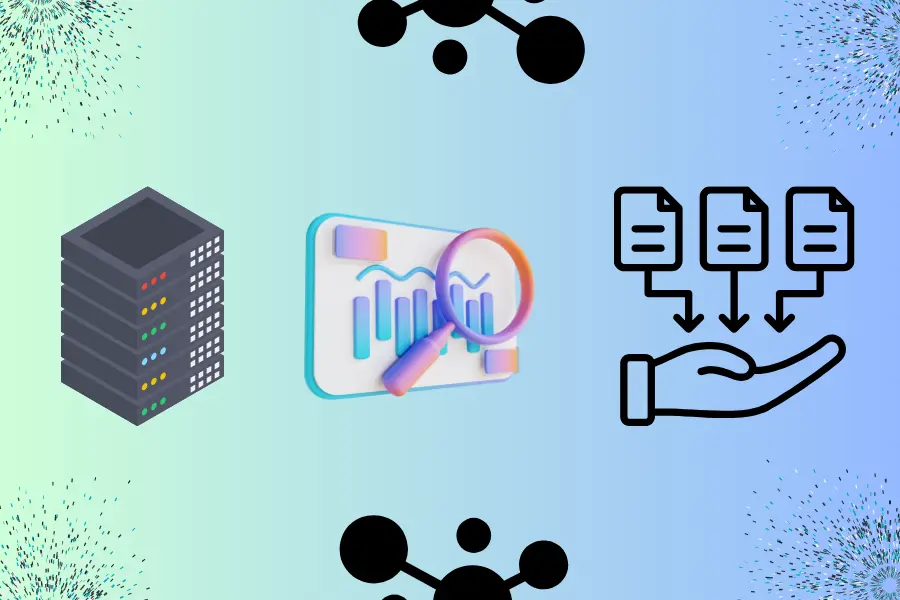Quantum Data Compression: Optimising storage and transformation efficiency
In the world of data science, where a large amount of information is generated, processed, and transmitted daily, the search for efficiency continues. Traditional methods of data compression have been in progress to optimise storage space and enhance transmission speeds. However, as the volume and complexity of data continue to accelerate, conventional techniques face limitations in keeping pace with the demands of modern data science applications. But quantum data compression, a revolutionary approach, is poised to transform the landscape of data management and transmission.

The Essence of Quantum Data Compression
Quantum data compression tackles the principles of quantum mechanics to achieve unmatched efficiency in data storage and transmission. At its core lies the concept of quantum superposition, wherein a quantum system can exist in multiple states simultaneously. Using this phenomenon, quantum data compression algorithms can represent and encode data in a highly compact form, significantly reducing the amount of storage space required.
Quantum Entanglement- The Key to Enhanced Compression Ratios
Central to the effectiveness of quantum data compression is the phenomenon of entanglement. In quantum mechanics, entanglement describes the indication of correlation between particles, where the state of one particle is naturally linked to the state of another, regardless of the distance between them. By exploiting entanglement, quantum compression algorithms can achieve compression ratios far beyond those achievable by classical methods.
Overcoming the Curse of Dimensionality
One of the fundamental challenges in traditional data compression is the curse of dimensionality, wherein the complexity of high-dimensional data makes conventional compression techniques inefficient. Quantum data compression offers a compelling solution to this problem by leveraging quantum principles to encode and manipulate high-dimensional data in a manner that preserves essential information while eliminating unnecessary or irrelevant details. As a result, quantum compression algorithms can effectively compress high-dimensional data with minimal loss of accuracy.
Quantum Compression for Big Data Applications
In the era of big data, where datasets are characterised by their massive volume and complexity, efficient data management becomes important. Quantum data compression presents a game-changing solution for big data applications, enabling organisations to store and transmit vast amounts of information with unparalleled efficiency. By compressing data at the quantum level, organisations can reduce storage costs, minimise bandwidth requirements, and accelerate data transmission speeds, thereby unlocking new possibilities for data-driven innovation.
Quantum Compression and Privacy Preservation
In addition to its efficiency benefits, quantum data compression also holds promise for enhancing privacy and security in data science applications. Traditional compression techniques often involve loss of data, where certain details are discarded to achieve higher compression ratios. However, this approach can compromise data privacy by exposing sensitive information to potential adversaries. Quantum compression, with its ability to preserve essential data features while reducing storage requirements, offers a more secure alternative for data storage and transmission.
Challenges and Opportunities
While quantum data compression holds immense potential, it is not without its challenges. Implementing quantum compression algorithms requires complicated hardware and infrastructure, including quantum processors and quantum communication networks, which are still in the early stages of development. Additionally, the field of quantum data compression is relatively developing, and further research is needed to optimise algorithms and overcome practical limitations.
However, despite these challenges, the potential benefits of quantum data compression are too compelling to ignore. As quantum computing technology continues to advance, we can expect to see increasingly complicated quantum compression algorithms capable of revolutionising data storage and transmission across diverse domains, from scientific research to commercial applications.
Looking ahead, the future of quantum data compression is promising. By addressing key challenges and exploring new frontiers, we can enter into a new era where data science knows no bounds. With quantum data compression leading the charge, we stand on the brink of a future where efficiency, security, and innovation converge to reshape the landscape of data science as we know it.
Active Events
Data Scientist Challenges One Should Avoid
Date: August 14, 2024 | 7:00 PM (IST)
7:00 PM (IST) - 8:10 PM (IST)
2753 people have registered
Transition from Non-Data Science to Data Science Roles
Date: Aug 07, 2025 | 7:00 PM (IST)
7:00 PM (IST) - 8:10 PM (IST)
2753 people have registered
Bootcamps
Data Science Bootcamp
- Duration:8 weeks
- Start Date:October 5, 2024
Full Stack Software Development Bootcamp
- Duration:8 weeks
- Start Date:October 5, 2024
